The Challenge is the Opportunity
Embracing Agency & Reinvention: DJ Clark Kent, Madonna, Sylvia Rhone, Troy Carter, John Janick, Alicia Keys & more
Most days, I move through life on autopilot, watching my to-do list grow endlessly as I mechanically complete tasks. Even in moments of rest, I find myself mindlessly scrolling through content, emerging more exhausted than renewed.
But recently, something shifted my perspective. While playing with my Labradoodle one morning, grief struck unexpectedly as I thought about the recent passing of my friend, Rodolfo Franklin, known to the world as DJ Clark Kent. Memories flooded back of my early days in music—a 21-year-old kid from Pennsylvania, working across the hall from a legend. Clark's generosity knew no bounds; he shared not just his time but his whole world with me (and many others), from recounting Hip-Hop history to bringing me along on his Soho shopping adventures. To many he was "God's Favorite DJ," but to me, he was a dear friend and mentor who opened doors I never knew existed.
I found myself revisiting our old messages. One particular exchange caught my eye—Clark had written, "The best way to repay me is to keep doing great things." Those words carry new weight now, especially as I realize nearly two decades have passed. At 41, I find myself questioning whether I've lived up to the promise he saw in me.
My journey hasn't followed a conventional path. I’m an entrepreneur at heart and I've co-founded two venture-backed startups that ultimately failed. My life doesn't fit the "picture-perfect" mold many strive for. Initially, I allowed myself to sink into a complex grief—mourning not only Clark and the loss his family endures, but also, selfishly perhaps, the time I felt I'd squandered and the potential I feared I haven't fulfilled.
The Power of Agency
A few months ago, I read a piece by NYU professor Scott Galloway titled “Agency” in his newsletter No Mercy/No Malice. I’ve returned to it repeatedly. One line in particular resonates deeply:
"The hand you've been dealt is better than you've been told."
Galloway defines agency as the combination of actionable power and persistent resilience—the recognition that you can actively shape your future. As he notes, "Individuals who perceive themselves as agents are more motivated, capable, and resilient."
This concept reminds me of what Chamath Palihapitiya calls "the ones in the arena"—those who refuse to be passive observers in their own lives. These are the doers and builders who step forward despite knowing failure is possible, choosing action over inertia. They embody true agency, actively pursuing their goals rather than waiting for life to unfold around them.
Stepping Into the Arena
Being in the arena demands courage. It's far easier to remain on the sidelines, where critiquing others from a safe distance requires no real risk. In our social media era, opinions flow freely but often lack substance. Those who step into the arena become targets, yet meaningful achievement never emerges from the safety of spectatorship.
Consider Maggie Rogers, who dared to share her song "Alaska" with Pharrell Williams during an NYU class. His response—"I have zero notes"—captured a transformative moment of recognition that changed her trajectory.
Or Wesley Wang, whose short film Nothing, Except Everything - which he created as high school student, caught Darren Aronofsky's attention on YouTube. The Black Swan director reached out directly, encouraging Wesley to postpone Harvard to collaborate on developing the short into a feature film.
Jessica Chastain's breakthrough came during her Salomé audition, when Al Pacino turned to producer Robert Fox and asked, "Are you seeing this, or am I dreaming?" Pacino became her "acting godfather," opening doors that led to her eventual Oscar and Golden Globe wins.
Then there's Sia's resilience. Ready to abandon music in 2010 after her Graves' disease diagnosis, she heeded her manager's advice (Jonathan Daniel from Crush) to take on smaller projects. This pivot led to writing hits like Rihanna's "Diamonds" and David Guetta's "Titanium." When she finally returned to performing, her album 1000 Forms of Fear topped the charts—nearly two decades into her career.
The Artists Who Were “Dropped”
Sometimes, stepping into the arena means confronting painful setbacks—the path rarely unfolds as planned. While many artists dream of signing with a major label, initial rejection often precedes breakthrough success.
Consider 50 Cent, who after surviving nine gunshots, faced being dropped by Columbia Records. Rather than retreating, he channeled his pain into mixtapes that caught the attention of Eminem and Dr. Dre, eventually leading to his landmark album Get Rich or Die Tryin'.
Similarly, Alicia Keys found herself without a label when Columbia let her go, only to discover her true artistic voice at J Records, where Songs in A Minor earned her five Grammy Awards in a single night.
Lady Gaga's journey exemplifies this pattern. After Def Jam dropped her before releasing a single song, she persevered, eventually redefining pop music at Interscope with The Fame.
Katy Perry faced a similar fate at Columbia, but reemerged stronger at Capitol Records, where One of the Boys and hits like "I Kissed a Girl" launched her to global stardom.
Even OneRepublic turned apparent failure into opportunity. After Columbia dropped them, they took control of their destiny by releasing "Apologize" independently on MySpace. The song caught Timbaland's attention, marking the beginning of their ascent in the music industry.
These stories remind us that setbacks aren't endpoints—they're integral parts of the journey toward success.
Resilience in Action: Kenneth Rooks and the Power of Perseverance
The 2023 USA Outdoor Track and Field Championships witnessed an extraordinary demonstration of human spirit when BYU junior Kenneth Rooks transformed potential defeat into unforgettable triumph. During the demanding 3,000-meter steeplechase, Rooks stumbled and fell—a moment that typically ends championship dreams. Instead of surrendering to circumstance, he leaped to his feet, regained focus, and charged through the field. In an astonishing display of determination, Rooks not only caught the pack but seized victory in the final stretch, crossing the finish line with a career-best time of 8:16.78.
Rooks later reflected on the deeper significance of his comeback: "It was life-altering. After the race, I realized it meant something bigger. I knew how difficult it was to fall and still win, especially at that level. It wasn't just cool—I knew this was going to mean something. During my victory lap, people were thanking me for the lesson—they could learn from my race."
His insights in the following weeks revealed the universal truth embedded in his experience: "The lesson I learned is that it's really important to just choose to keep going. I wouldn't be talking to you right now if I had decided to throw in the towel at that moment. I accomplished far more than I thought I could simply because I chose to get up and keep going. Later in the race, I had to dig deep again and push forward, but it all started with that decision to rise and continue."
Rooks' perseverance continued to yield remarkable results. At the 2024 Paris Olympics, he captured silver in the 3,000-meter steeplechase, solidifying his place among elite athletes and inspiring others with his journey from setback to success.
Turning Setbacks Into Comebacks
Kenneth Rooks' story reminds us that setbacks often precede breakthrough moments. This principle extends beyond athletics—particularly relevant in today's economy where layoffs and job losses are prevalent, especially in music and entertainment. What initially appears as career derailment can become the catalyst for extraordinary reinvention.
Consider these transformative journeys of music industry leaders who turned professional setbacks into defining moments:
Scooter Braun lost his position as a marketing executive at So So Def Records early in his career. Rather than retreating, he launched SB Projects, discovering and developing global stars like Justin Bieber and Ariana Grande. Today, he leads Hybe America as CEO, wielding significant influence in entertainment.
Troy Carter's highly publicized dismissal as Lady Gaga's manager in 2013 led him to pivot toward technology and venture capital. He made prescient investments in companies like Uber and Spotify, eventually becoming Spotify's Global Head of Creator Services. Now, through Q&A, he bridges entertainment and technology, reshaping industry paradigms.
Clive Davis faced a devastating blow in 1973 when Columbia Records dismissed him as president amid contested financial allegations. He responded by founding Arista Records, where he cultivated legendary artists like Whitney Houston and Aretha Franklin, cementing his place among music's most influential executives.
Sylvia Rhone turned her 2004 departure from Elektra Records into an opportunity for reinvention. As president of Universal Motown Records, she revitalized established artists like Stevie Wonder while nurturing emerging talents like Kid Cudi. Now, as Chairwoman and CEO of Epic Records, she guides the careers of contemporary stars like Travis Scott and Future.
Larry Jackson transformed his dismissal from J Records. He built success at Interscope working with artists like Mary J. Blige and Lana Del Rey, rose to Head of Content at Apple Music, and recently founded gamma, pioneering new paths for artist-entrepreneurs.
Adversity as a Catalyst for Reinvention
These stories illuminate a powerful truth: setbacks often spark transformation. Being fired or laid off isn't an ending—it's an invitation to rewrite your narrative. In the dynamic landscape of the music industry, the capacity to adapt and persist distinguishes exceptional careers from ordinary ones.
This principle transcends industries: whether in business, athletics, or life itself, resilience and reinvention can transform any obstacle into a foundation for future success. The willingness to keep moving forward, to evolve and adapt, often determines our trajectory more than our initial circumstances.
Reinvention as a Path to Longevity: Madonna's Legacy
Madonna's career exemplifies the power of continuous reinvention. Throughout her decades in music, she has masterfully evolved both sonically and visually, maintaining her relevance in an ever-shifting pop culture landscape. Each transformation represents a strategic adaptation to changing times while preserving her core artistic identity, proving that reinvention isn't just about survival—it's about sustained excellence.
Bursting onto the scene in the early 1980s as the provocative "Material Girl," she crafted an unmistakable fusion of pop and dance music, complemented by her iconic style of lace, fishnets, and crucifixes. This foundation gave way to deeper artistic exploration with 1989's "Like a Prayer," where she boldly merged religious imagery with pop culture, igniting global conversations about faith and artistry.
As the 1990s unfolded, Madonna continued pushing boundaries with Erotica and her Sex book, challenging societal norms around sexuality and expression. Her evolution continued in 1998 with Ray of Light, where she embraced electronic soundscapes and spiritual themes, revealing new depths of artistic maturity that garnered critical acclaim.
The 2005 release of Confessions on a Dance Floor marked a triumphant return to her dance music roots, demonstrating her ability to honor her origins while embracing contemporary sounds. Through each reinvention, Madonna proved that evolution isn't just about changing—it's about growing while maintaining your essential artistic truth. (Clearly, there’s a reason why she can perform for 1.6M people).
Reinventing Yourself: It's Never Too Late to Start
If Richard “Richie” Jerimovich from The Bear can transform himself from chef to polished restaurateur, we all possess the potential for reinvention. Whether it's leaving an unfulfilling job to build something new or pivoting to an unexplored path, age and starting point are irrelevant—the perfect moment is now. (“Yes, Chef!”)
Music industry history repeatedly proves this through stories of iconic label founders who built empires from modest beginnings. From ages 18 to 78, these visionaries demonstrated that success knows no timeline.
(A critical note: The scarcity of women in these founding stories highlights an urgent need for greater representation in music industry founders and leadership.)
Consider John Janick, who co-founded Fueled by Ramen from his University of Florida dorm room in 1996. Alongside Less Than Jake's Vinnie Fiorello, he handled everything from T-shirt printing to royalty payments by hand. Jimmy Eat World's 1998 EP marked their breakthrough, enabling expansion to their first Tampa office.
Chris Blackwell launched Island Records in Jamaica in 1959 with minimal resources, personally distributing Lance Hayward's jazz album from his car trunk. Despite widespread skepticism, his persistence led to signing revolutionary artists like Bob Marley and U2, transforming Island into a global force.
Berry Gordy's Motown Records began in 1959 with an $800 family loan and a small Detroit house. Facing constant rejection from established labels, Gordy developed a distinctive sound and artist development approach that launched legends like The Supremes and Marvin Gaye, creating a cultural movement.
Andre Harrell established Uptown Records in 1986 despite distribution challenges, steadfastly championing hip-hop and R&B. His dedication fostered the careers of artists like Mary J. Blige and Jodeci, solidifying Uptown's cultural impact.
Jerry Moss and Herb Alpert's A&M Records started in 1962 with just $200 and a garage office. Early struggles gave way to massive success after Alpert's breakthrough recordings, leading to signings like The Carpenters and Janet Jackson. Their $200 investment ultimately yielded $1.1 billion through strategic sales to PolyGram and their publishing division, Rondor Music. (Read that again: $200 —> $1.1B)
If You Build It, They Will Come
The magic of building something meaningful lies in the power of creation itself. When you take an idea, nurture it, and bring it to life, people will take notice. Success starts with believing in your vision and committing to the work.
Over the years, countless entrepreneurs and creators have proven this truth. They began with nothing but an idea and determination—and what they built drew the world to them.
Stories That Prove the Power of Building
The last five years have witnessed remarkable examples of visionaries who created extraordinary ventures in the music industry:
J. Erving helped transform music distribution through Human Re Sources, leading to Sony's acquisition in 2020. Mike Caren's innovative Artist Partner Group attracted Warner Music Group's attention, resulting in a $250M acquisition that same year. Todd Moscowitz's artist-first approach with Alamo Records culminated in a $225M Sony deal in 2021.
The founders of 300 Entertainment—Kevin Liles, Lyor Cohen, Roger Gold, and Todd Moscowitz—built such a powerful platform that Warner Music Group invested $400M to acquire it in 2021. Scooter Braun's Ithaca Holdings grew into an empire that HYBE purchased for $1.05B that same year.
Quality Control, under Pee Thomas and Coach K's leadership, evolved from a cultural movement into a $320M acquisition by HYBE in 2023. Elliot Grainge's modern approach with 10K Projects drew Warner Music Group to acquire a majority stake for $102M. Most recently, Don Jazzy and Tega Oghenejobo's Mavin Records, Africa's leading music label, joined Universal Music Group in a deal valued between $150M-$200M in 2024.
What united these founders wasn't vast resources or perfect timing—it was their ability to build something that mattered. They created value, and the world responded.
Starting Small to Build Big
The path to extraordinary success doesn't require massive initial capital—it demands a solution to a real need. Some of today's most influential companies in technology and media began with modest seed funding before growing into global powerhouses:
Reddit's journey from a $72,000 investment to a $25.7 billion market capitalization demonstrates the power of community-driven growth.
WhatsApp transformed a $250,000 seed round into a $19 billion acquisition by Facebook, revolutionizing global communication.
Snapchat evolved from $485,000 in initial funding to reach a $19.1 billion market value by reimagining social media.
Facebook, now a tech giant with a $1.4 trillion market cap, began with just $500,000 in seed funding.
Airbnb converted $600,000 in early funding into an $85.8 billion enterprise by transforming the hospitality industry.
Coursera grew from a $793,000 investment to a $1.1 billion market cap by democratizing education.
Dropbox expanded from $1.2 million to an $8.7 billion valuation by simplifying file sharing and storage.
Lyft and Uber turned initial investments of $1.4 million and $1.6 million into market caps of $7 billion and $150.6 billion respectively, revolutionizing transportation.
Robinhood transformed a $3 million seed round into a $32.4 billion market cap by making investing accessible to everyone.
These companies didn’t begin with huge funding rounds—they began with founders who believed in their ideas, built something valuable, and trusted that people would come.
Build It Now
The lesson is clear: if you create something the world needs, your audience will find you. The timing will never feel perfect, but waiting only postpones possibility. Start where you are, trust your instincts, and take the leap. Build it, and they will come.
A New Era for Artists: The Power of Streaming
We're living in a golden age for artistic creation. The barriers between artists and audiences have dissolved—traditional gatekeepers like radio programmers, label executives, and retail buyers have given way to algorithms that democratize discovery. While this transformation presents new challenges, it fundamentally levels the playing field, giving every artist the opportunity to reach their true audience.
The current landscape may be more competitive, but it also offers unprecedented opportunities for artists to sustain themselves through their work. Streaming platforms have revolutionized how music reaches listeners, enabling audiences to explore vast catalogs and discover artists they might never have encountered in the traditional system. This direct path between creator and listener has opened new possibilities for building sustainable careers in music.
The Streaming Revolution: A Decade of Growth
The democratizing effect of streaming platforms has dramatically expanded opportunities for artists over the past decade. Luminate's data, which tracks album sales including TEA (track equivalent albums) and SEA (streaming equivalent albums), reveals remarkable growth across all success tiers:
Elite Performers (1M+ Albums)
2013: 51 artists
2023: 103 artists
Result: The number of artists reaching platinum-level success has doubled
Major Success (500K+ Albums)
2013: 150 artists
2023: 290 artists
Result: Nearly twice as many artists are achieving significant commercial success
Established Artists (250K+ Albums)
2013: 335 artists
2023: 665 artists
Result: The path to sustainable success has opened for twice as many artists
Rising Artists (100K+ Albums)
2013: 772 artists
2023: 1,592 artists
Result: The number of artists building viable careers has more than doubled
Emerging Artists (50K+ Albums)
2013: 1,299 artists
2023: 2,987 artists
Result: More than twice as many artists are reaching meaningful audience milestones
This data clearly demonstrates that streaming has expanded the opportunity for artists at every level, from emerging talent to established stars.
The Work Still Matters
Current criticisms of streaming platforms like Spotify and other DSPs often miss a crucial historical perspective: the CD era presented far greater barriers to entry. Major labels dominated approximately 85% of retail shelf space, with inventory heavily favoring established artists. For independent musicians, securing retail distribution was virtually impossible.
Today's landscape offers unprecedented accessibility—artists can share their music globally with minimal upfront investment. While the tools for distribution have democratized, they still demand dedication and persistence. Too many artists expect instant success without investing the time and effort needed to build a genuine audience.
As Tyler, The Creator powerfully observed: "I know a lot of people who make things, who don’t stand proudly by their stuff." His words underscore a timeless truth: meaningful success requires patience and persistence.
In our increasingly crowded digital landscape, believing in your work means championing it consistently and giving it time to find its audience. The path to success isn't a sprint—it's a marathon that rewards those who stay committed to their vision and keep showing up, day after day.
Taking Risks: Lessons from Elon Musk
In 2008, at a pivotal moment, Elon Musk faced a defining choice after selling PayPal for $1.5 billion. Rather than securing his $180 million share, he took an audacious risk—investing everything into Tesla and SpaceX. This decision pushed him to the edge of bankruptcy, with both companies nearly failing.
In a revealing 60 Minutes interview, Musk explained his relentless pursuit despite overwhelming odds: "If something is important enough, you should try even if the probable outcome is failure." His words illuminate a fundamental truth about transformative success—it often balances precariously between triumph and catastrophe.
The Universal Lesson
This principle resonates whether you're creating art or building a company: while tools and opportunities abound, it's unwavering dedication that determines success. The formula is straightforward but demanding:
Build something meaningful
Champion it with conviction
Stay true to your vision, especially when immediate success proves elusive
The margin between breakthrough and breakdown may be narrow, but it's crossed by those who possess the resilience to continue when others would surrender. In the end, persistence isn't just about avoiding failure—it's about remaining committed to your vision long enough to prove its worth.
The Thin Margin Between Greatness and Defeat
Tennis offers a striking metaphor for success through the statistics of three legendary players. While their career achievements place them among the greatest athletes of all time, the numbers reveal just how razor-thin the margin between victory and defeat can be:
Match Win Percentages (Career)
Roger Federer: 82% victories
Novak Djokovic: 84% victories
Rafael Nadal: 83% victories
Result: Consistent dominance at the highest level
Points Won (Career Average)
All three champions: ~54% of total points played
The Revelation: Even the greatest players win barely more than half their points
This remarkable contrast—between winning over 80% of matches while claiming just 54% of points—illuminates a profound truth: greatness isn't about winning every point. It's about:
Maintaining focus when it matters most
Performing consistently under pressure
Converting small advantages into significant victories
Persisting through moments of adversity
The lesson transcends tennis: extraordinary success often comes down to maintaining excellence across countless small moments, even when the margin between triumph and defeat is microscopically thin.
Full Circle: Lessons from DJ Clark Kent
Rodolfo Franklin—DJ Clark Kent—transcended his role as a legendary DJ, producer, talent finder, sneaker community advocate, and brand consultant to become a true catalyst for others' greatness. His enduring wisdom remains clear: it's never what you do, it's why you do it.
Clark possessed a rare gift: the ability to recognize potential in others before they saw it in themselves. He didn't just open doors—he helped people believe they deserved to walk through them. For countless individuals, myself included, his impact extended far beyond music into the realm of personal transformation through his generous spirit of mentorship and unwavering belief in others' capabilities.
As we reflect on the stories we've explored:
Kenneth Rooks rising after his fall
Elon Musk betting everything on his vision
Madonna's continuous artistic evolution
Athletes winning with the slimmest of margins
Entrepreneurs building empires from modest beginnings
They all embody one fundamental principle: agency—the power to take action, shape your future, and persist when the odds seem insurmountable.
Clark's legacy reminds us that our potential often exceeds our own estimation. As Scott Galloway noted, "The hand you've been dealt is better than you've been told." The real question becomes: how will you play it?
To everyone reading this:
Be an agent of change
Step boldly into the arena
Build something meaningful, despite your fears
Believe in yourself and others, as Clark believed in us
Remember—your "why" matters more than your "what"
Thank you, DJ Clark Kent, for showing us how to recognize the greatness within ourselves and others. You’re greatly missed.

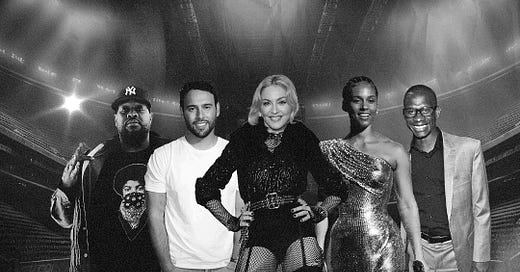




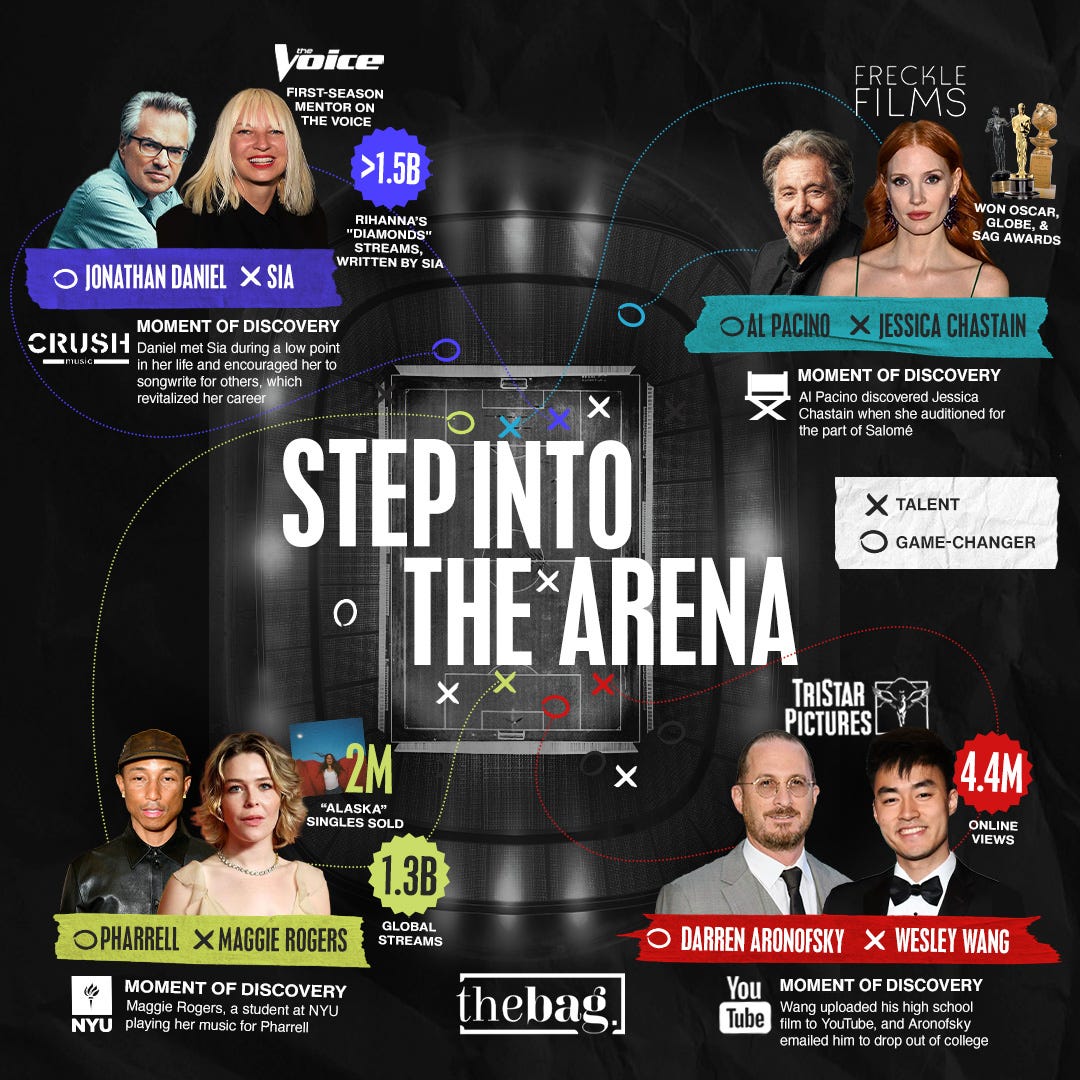
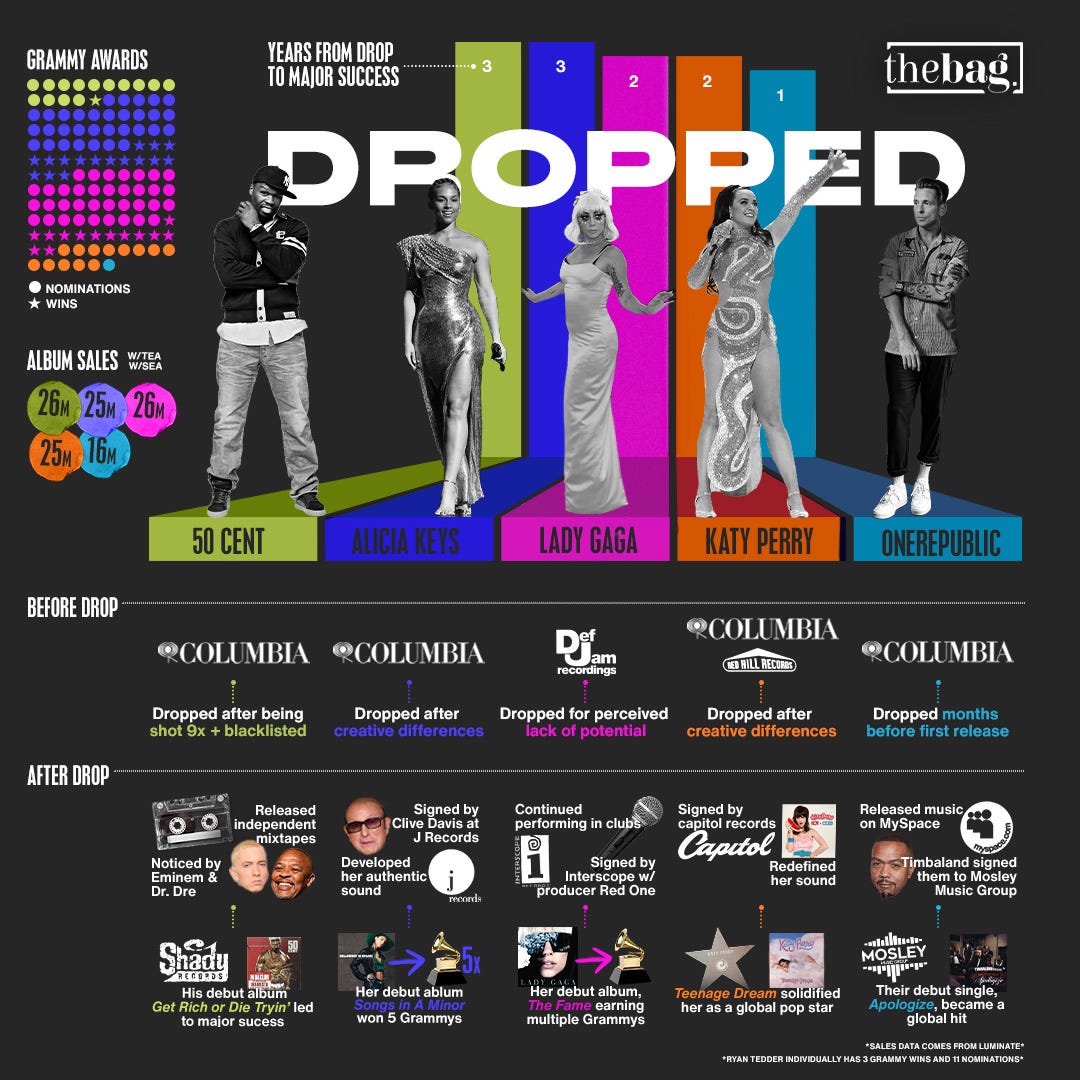
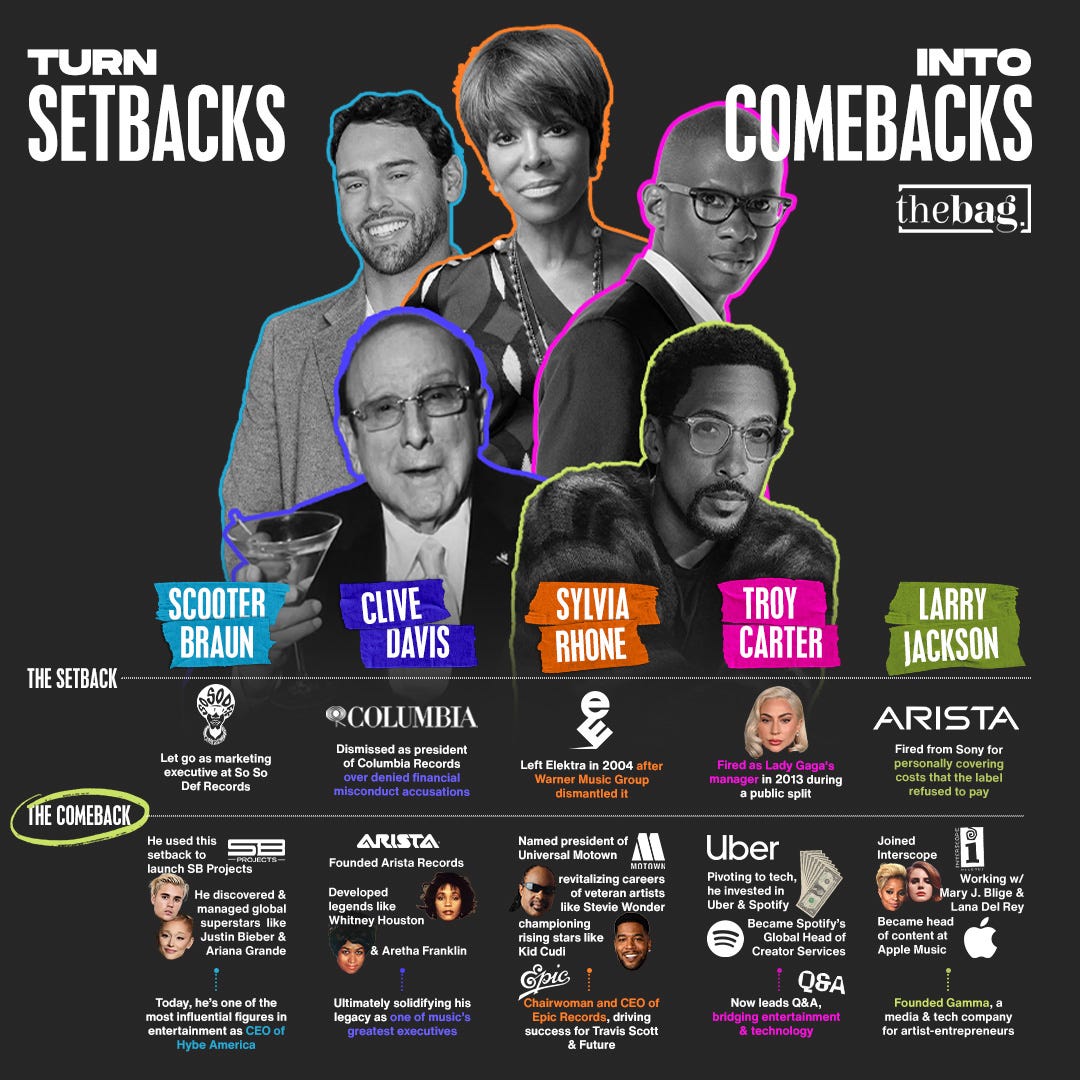
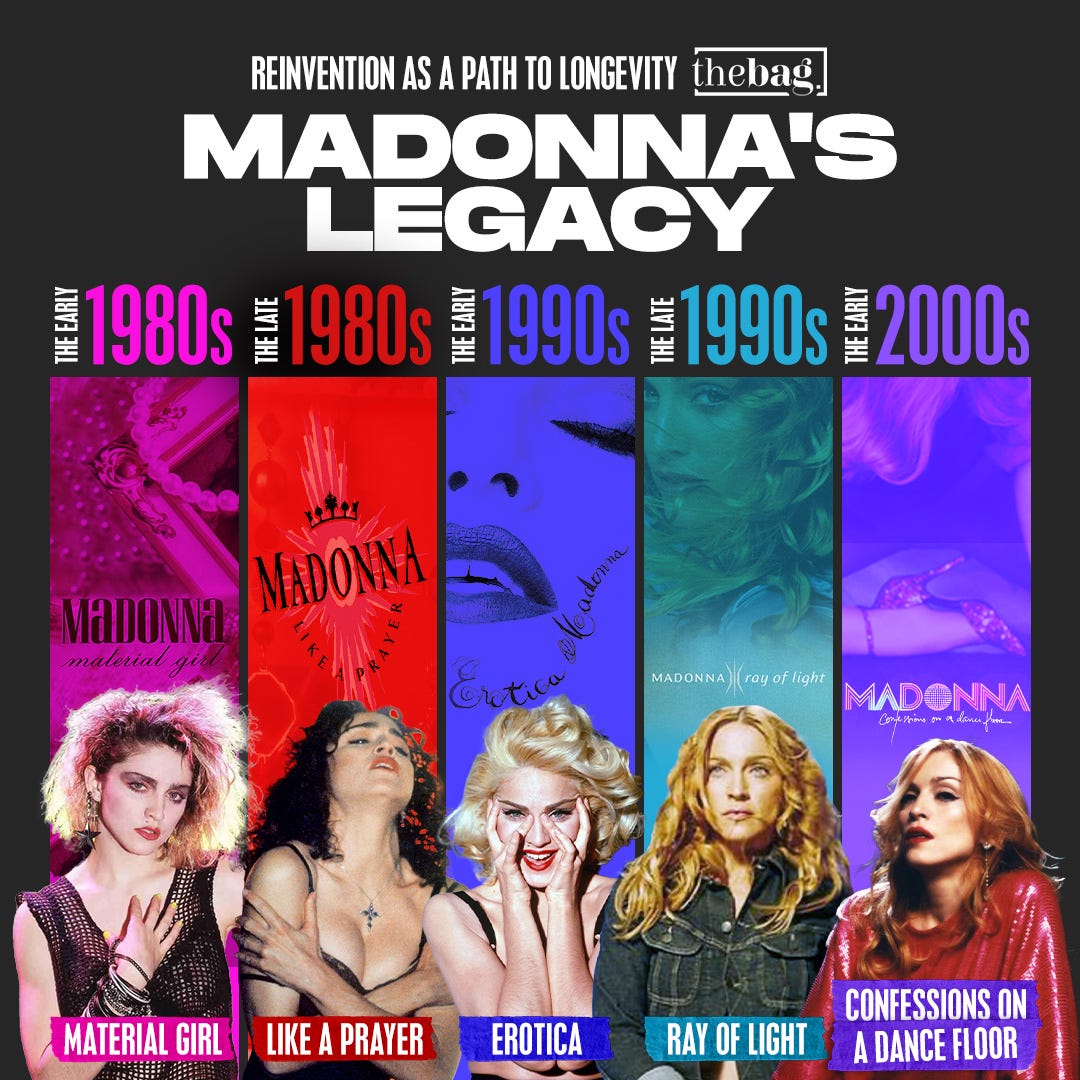
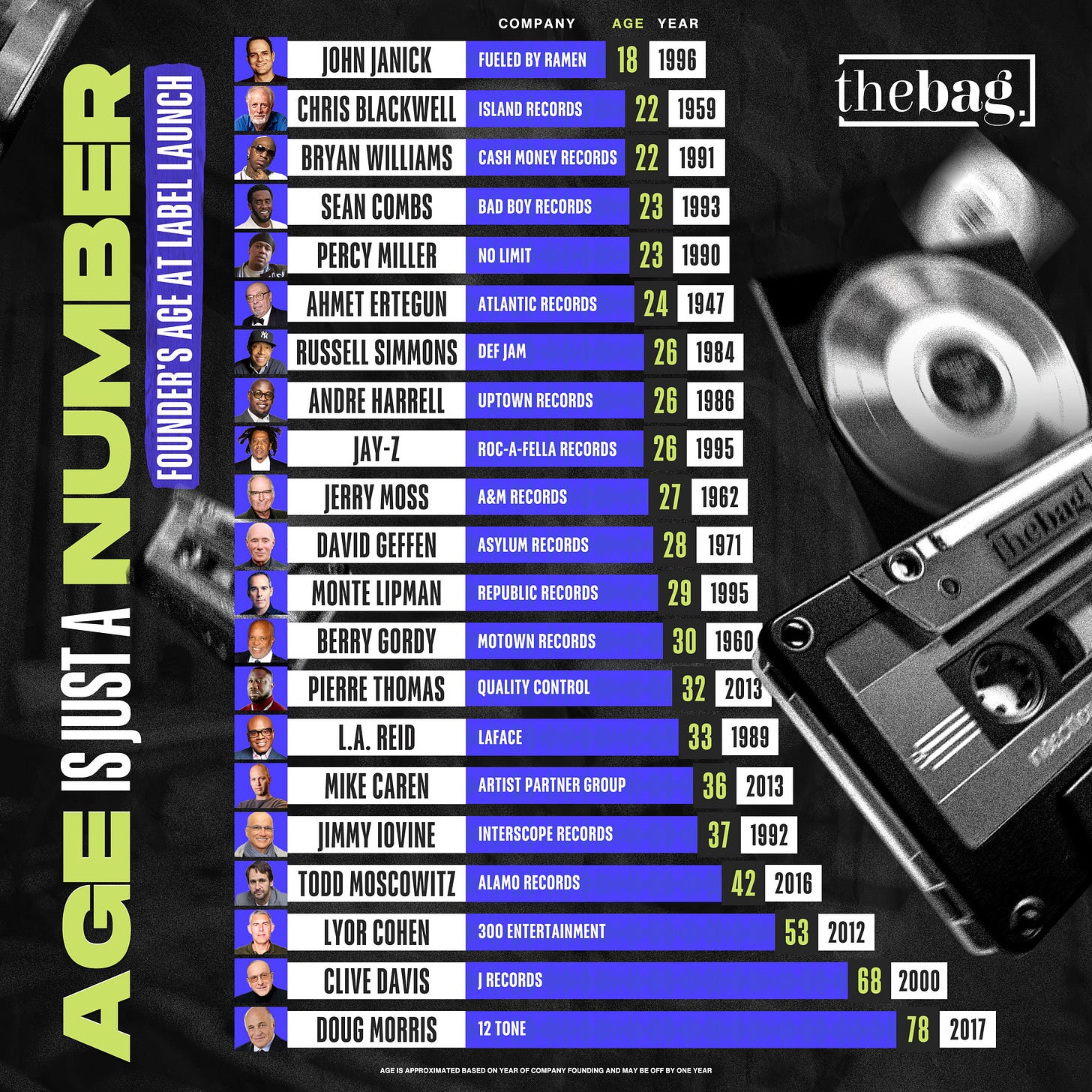

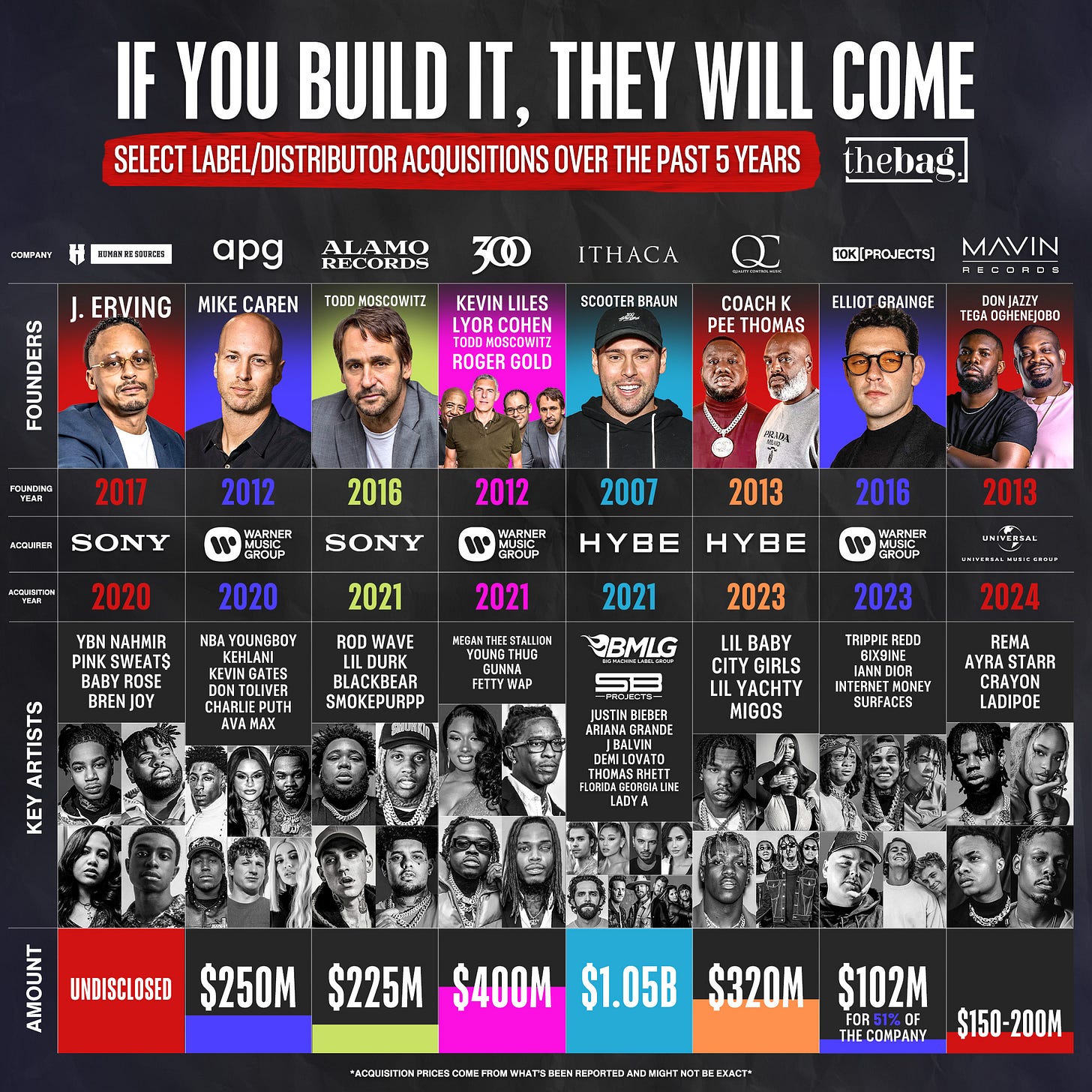
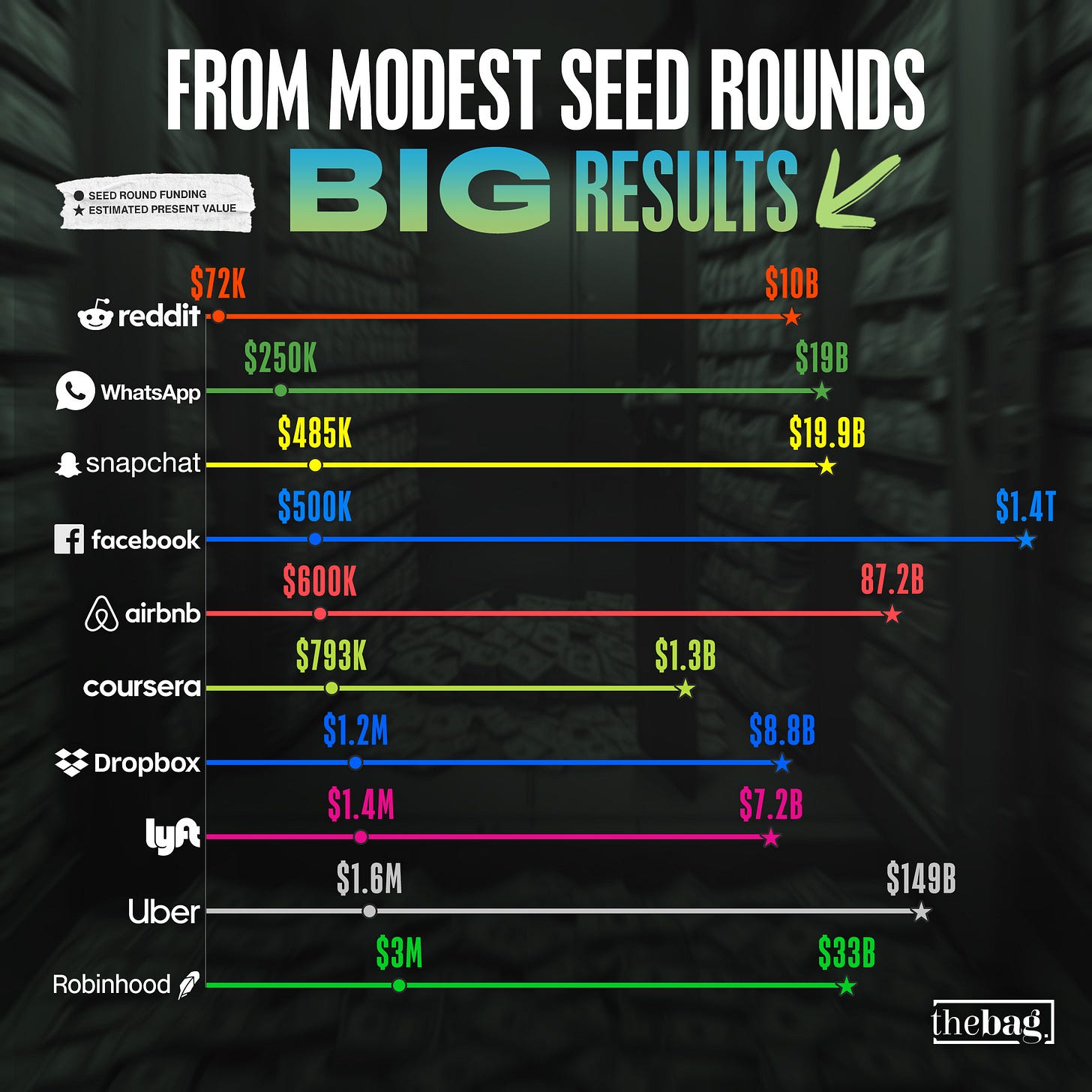
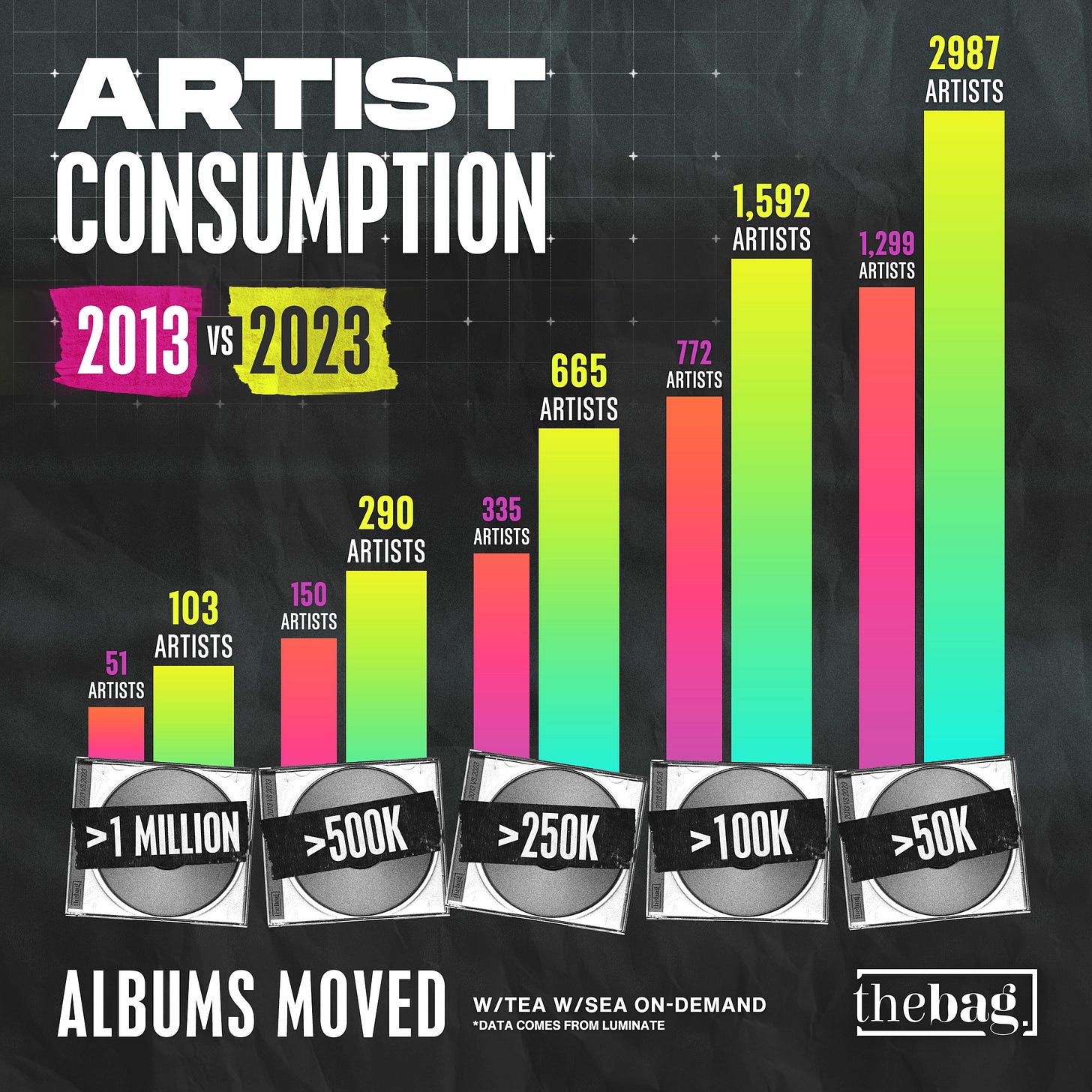
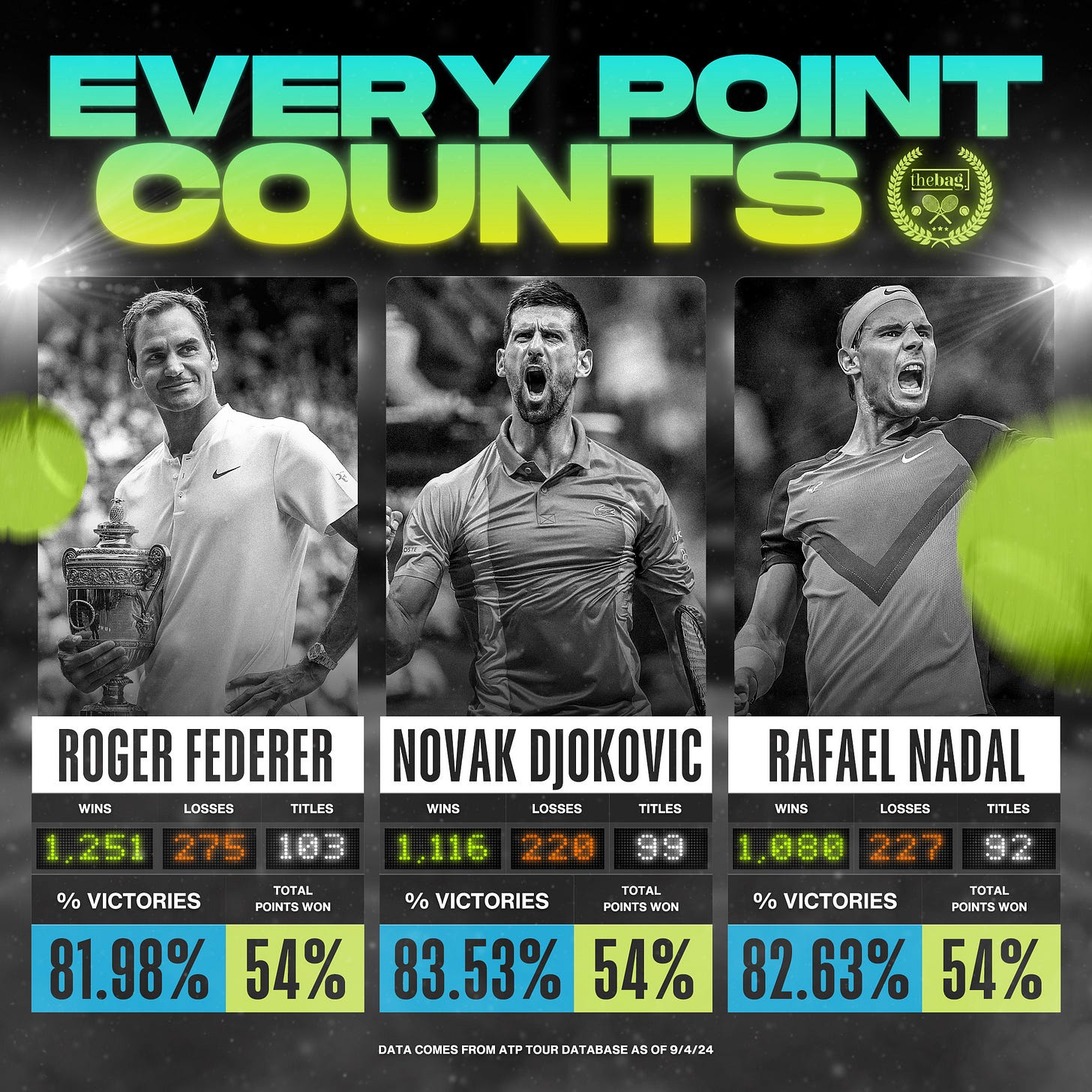
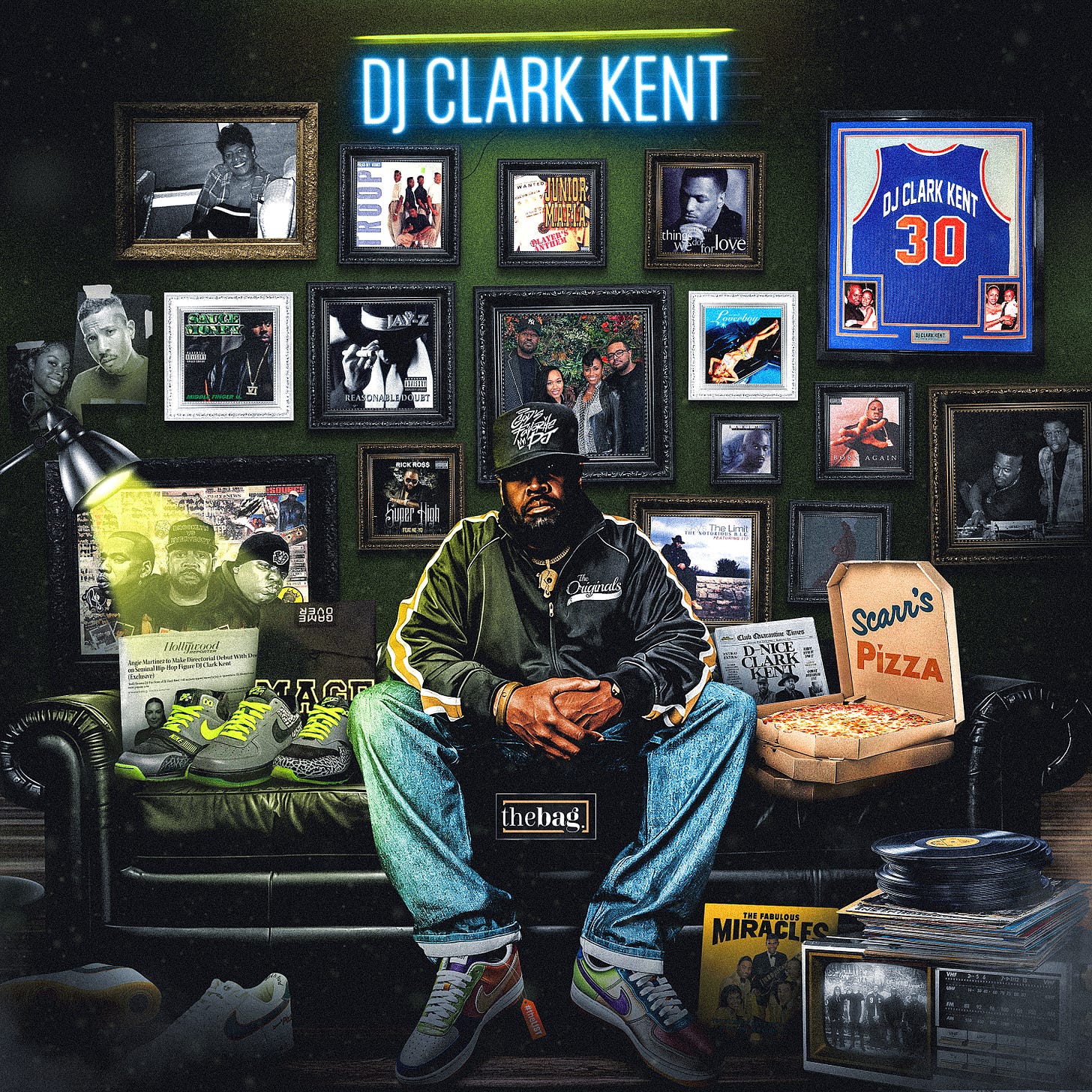
Nice motivational story for others who may need such a thing. well thought through I must say. Clark Kent lived across the street from me in Crown Heights. I always have saluted him as a neighbor. He was always in and out. So sad he passed away so young. Keep bringing these stories.